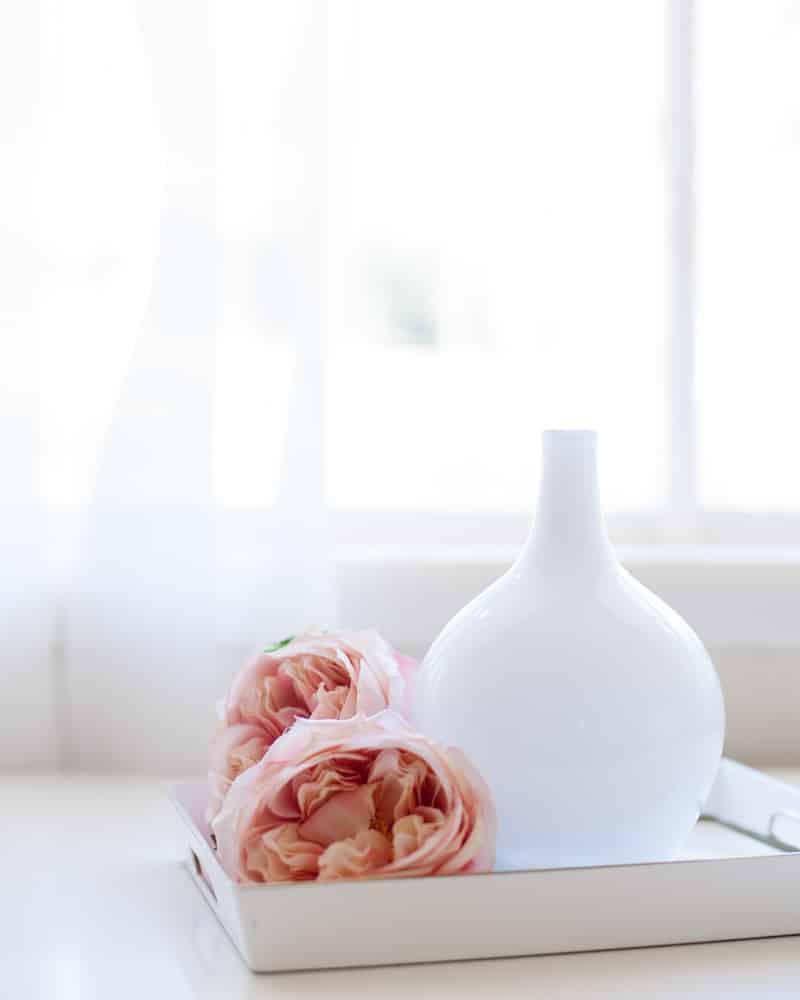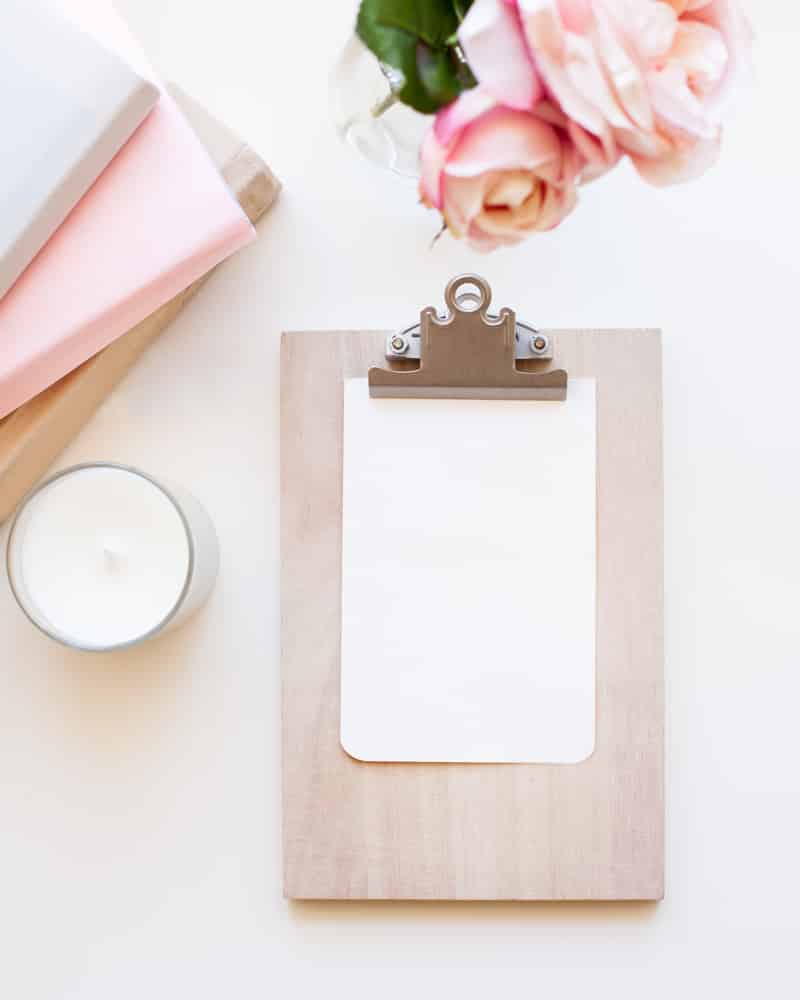The 5-Minute Daily Journaling Routine That Will Transform Your Mindset
Journaling is one of the single most important self-care practises we can incorporate into our lives in order to improve our mindset, boost self-esteem, and develop emotional intelligence, but why should journal every day?
When we have a daily journaling routine, we’re getting to reap the multiple benefits of journaling – such as improved self-esteem, self-awareness, mindfulness, and positivity – every single day. We’re not only experiencing it once in a while, we’re consistently showing up for ourselves to work on our mindset and mental health. This improves our sense of self-worth and also encourages us form a positive habit, which helps us change the way we approach life and look at ourselves for the better.
I’ve journaled ever since I was a child, but I never saw any meaningful benefits until I committed to a daily journaling routine. That’s when it became life-changing.
What do I write in my journal? [My daily journaling routine]
My daily journaling routine consists of five of the best journaling techniques for improving your mindset, which I’ve combined into one method. I call this the Countdown method.
(This is the exact method I teach in my Master Your Mindset With Journaling workbook.)
I do this simply to get the most benefits for my mindset, while saving time. It usually only takes me around five minutes.
This isn’t to say that you shouldn’t spend longer journaling if you want to and have the time, I just acknowledge that a lot of people are on a time crunch or find the idea of journaling for longer every single day daunting, which leads to them becoming demotivated and stopping their practise altogether.
By keep my journal practise short, sweet, and effective, I’ve managed to turn it into a daily habit that I’ve stuck to every single day for over a year now, which has been a game-changer for my mindset and mental health.
The Countdown journaling method consists of five parts, which I’ll explain now.
Gratitude
First and foremost, practising gratitude should be part of any journaling routine.
By focusing on what we do have, rather than on what we don’t, we retrain our brains to go to a more positive place over a negative one.
By practising gratitude every day, we:
- Encourage positive thinking and happiness
- Boost self-esteem
- Keep negative over-thinking at bay
Try writing down just a few things you’re grateful for each morning.
If this works for you, maybe give the 30 days of gratitude challenge a go.

Goal/intention-setting
Goal-setting is a journaling technique that’s often overlooked and it really shouldn’t be.
Setting goals – no matter how small – every day can help boost motivation and, when you’re feeling low, give you a reason to get out of bed in the morning.
Some small goals you might set during your journal practise could be:
- Make your bed
- Take a shower
- Brush your teeth
- Schedule an appointment over the phone
You may want to set larger daily goals, such as:
- Write 1000 words of your book
- Clean your entire car, inside and out
- Do the grocery shopping
- Go to an appointment
No matter how big or small, achieving goals feels good and can give you a little extra boost going into the next day.
Intentions are similar to goals, but more general and emotion-based rather than action-based.
Goals are what you want to do today; intentions are how you intend to be today.
For example, a few intentions you might set are:
- Listen to your intuition
- Be kind to yourself and others
- Be gentle with yourself
By setting intentions as well as goals, we learn to prioritise ourselves and really show up for ourselves, even if showing up for ourselves only means brushing our teeth that day.

Self-care scheduling
Self-care is one of the most important things we can do for our own well-being. It means looking after our own mental, emotional, and physical needs in order to maintain good mental (and physical) health and a balanced mindset.
When you have to deal with mental health issues, maintaining a high level of self-care can not only help ease the symptoms when they arise, it can help prevent bad episodes from happening as often.
With this in mind, it seems absolutely ridiculous that so many of us put it on the backburner. However, unfortunately, when we’re not feeling our best, it becomes dangerously easy to let it slide.
I’m totally guilty of this myself.
Self-care looks different to everyone and, deeper still, it looks different to ourselves at different times. For example, sometimes self-care may be lifting weights or going for a run to clear your mind. Other times, it might be just stretching or totally resting on the sofa all day. It all depends how you feel and what you need.
Journaling can actually help us get in touch with our intuition, which will tell us what our bodies, minds, and souls need at certain times.
By scheduling in self-care, we ensure we’re no longer putting our needs on the backburner, even if it’s only for a short amount of time each day. It counts. It matters because you matter.

Every day, I plan out what self-care activities, big or small, that I plan to carry out. This ensures that I’m holding myself accountable and putting my needs first by setting them out in writing in the morning. This makes me more likely to actually fulfil my promise to myself and practise self-care.
As an added bonus: journaling is actually a self-care activity in itself.
Need some self-care ideas? Here are some of my favourite:
- Take a long bath or shower with your favourite products
- Follow a 10-minute guided meditation on YouTube
- Yoga
- Eat a delicious, fulfilling meal
- Take a nap
- Tidy my living area
- Watch a comfort movie
- Watch something that I know will make me belly-laugh
Remember, self-care is different for everyone, so find activities that will feel good to you.
Affirmations
Affirmations are self-affirming statements that we repeat to ourselves in order to reprogram our way of thinking.
If we repeat a statement over and over again, we often start to believe it’s true. Therefore, when we repeat positive statements about ourselves, we can ‘trick’ our brains into believing how awesome we are. Although, realistically, we’re not tricking ourselves, we’re simply allowing ourselves to see the truth because we’re already amazing and worthy.
By incorporating affirmations into our daily journal routine, we can improve our confidence, self-esteem, and mindset.
I personally repeat affirmations in writing in my journal, then repeat them in my head (you can repeat them out loud if you like), and then repeat these same affirmations any time my brain tries to engage in negative self-talk.
Affirmations are a great tool to combat our negative inner monologue.
Affirmations that you might want to repeat are:
- I am worthy
- I am enough just the way I am
- I am strong and confident
- I can overcome anything that life throws at me
- I choose to be positive
- I am in charge of my own happiness
- I choose to use any hurdles as lessons to grow
I was sceptical at first, but after a year of repeating affirmations every day, my inner confidence has grown more than I ever thought possible. I have this deep inner- knowing that I’m strong and capable. Self-doubt is almost a thing of the past (I say almost because I’m still human and we all have bad days). It really is amazing.
Writing exercise
The fifth and final part of my daily journaling routine is completing a writing exercise.
For me, this usually means selecting a journal prompt and writing about that or free writing, which is essentially me writing whatever comes to mind and venting about how I’m feeling on that particular day.
Some examples of daily journal prompts you might want to use are:
- How am I feeling today? Why might this be?
- Write about a time you felt really proud of yourself.
- What traits do you really like about yourself?
- What traits do you admire in others that you wish you had?
- Write about a time someone let you down, how that made you feel, and how that affected you to this day.
- What do you see yourself in five years?
By rounding off my practise in this way, I’ve taught myself how to process emotions and be mindful. I can now be almost objective about my feelings; almost as if I’m stepping outside of my own mind and assessing how to move forward.
I still feel them – I’m not an emotionless robot – but I don’t allow them to run away from me now and, even if they do, I know that’s okay. I don’t beat myself up for it anymore.
It’s helped me so much when it comes to my depression and anxiety because I’m not longer inclined to catastrophise or spiral. I know that the feelings I’m feeling are valid, human emotions. I also know how to self-sooth and make myself feel better, and, if I can’t, I know that I’ll be okay. They’ll pass.

There are tons of journaling ideas that you can use to fill this space and round off your own journaling routine.
Some other daily journaling ideas for this part of the practise are:
- Scripting (writing a snapshot or scene from your dream life – this is usually used in the Law of Attraction to manifest your dream life)
- Stream of consciousness (similar to free writing – you just write whatever comes to your mind down on the paper)
- Manifesting (writing down your manifestations as if they’re already happened)
- Letter (writing a letter to yourself or someone else but never sending it)
- Plan of action (if you have stresses, worries, or limiting beliefs, come up with a POA to move past them)
In my workbook, Master Your Mindset With Journaling, I explain the Countdown journaling method outlined above in detail and even provide a printable daily journal template that you can use.
This routine works because it allows you to get true benefits of journaling in a relatively short amount of time, which encourages you to stick at it and turn it into a long-term habit. This is where the real change happens.
My mindset is now in an awesome place. I’m generally positive, and can be mindful and self-aware, and when I do feel low, I feel as if I’m equipped to overcome it in my own time. I have the tools.
Visit here if want to find out more about my Master Your Mindset With Journaling workbook.
Is it good to journal every single day?
You might be wondering if journaling is good or even healthy to practise every single day and I totally get why.
If you allow journaling to get in the way of other responsibilities or let it have a negative impact on your emotions throughout the day because you’re worrying about it, doing so every day might feel as if it’s doing more harm than good.
This is where you need to use your intuition.
If you become obsessive over journaling; allow any negative emotions that are brought up during your practise to seep into your everyday life; or end up beating yourself up for skipping a day, you may want to re-evaluate why you’re doing this in the first place.
Daily journaling should improve your mood, not make it worse.
If you do find that it’s not working for you or that you’re dreading your daily journal practise:
- Take a step back and cut back on journaling; perhaps try three times a week or even just once.
- Introduce self-care practises that offset any negative emotions that might pop up during practises like shadow work.
- Consider why you started journaling in the first place; remind yourself that it’s not that serious – journaling shouldn’t be the be all and end all when it comes to looking after your mindset and wellbeing.
For the most part, daily journaling can be life-changing when it comes to improving your mindset, self-esteem, and self-awareness.
Think of it this way: every single day, you’re being grateful, venting emotions, processing your feelings, and learning how to grow.
You’re also training your brain to be mindful and creating a positive habit at the same time, which will give you an inner strength you didn’t know was possible.
There aren’t many downsides.
The benefits of daily journaling include:
- Learning how to process emotions in a constructive way
- Learning how to express emotions in a healthy, mindful way
- Recognising triggers and being able to analyse them, understand them, and even move past them
- Tracking your symptoms of mental health issues
- Understanding and recognising patterns
- Being more positive, focusing on what you have, and being thankful
- Boost in motivation
- Making time for yourself and proving to yourself that you can turn up for you
- A deep knowing that you’re capable of overcoming anything
- It can make you a better listener, more empathetic and emotionally mature, which makes you a better friend and partner
Ultimately, there’s nothing to lose by giving daily journaling a go. Just take it day-by-day, remember why you’re doing it, and don’t beat yourself up for missing a day.
It should be a positive self-care activity, not something that brings you stress.
If you discover that daily journaling isn’t for you, that’s cool. You do you.
This is why I only spend five minutes journaling every day – more than that feels overwhelming and is probably the reason I couldn’t stick to it in the past.
How to stick to a daily journaling routine
It’s all well and good starting a journal routine when you’re motivated and ready, but sticking to it is another matter. At least it certainly was for me for many, many years.
My top tips for sticking to your practise are:
- Set a reminder on your phone
- Set physical reminders – e.g. sticky notes
- Keep your journal somewhere you’ll have to see it, preferably somewhere you have to physically touch it or move it so you’re reminded to write in it
- Find you ‘why’ – consider why you want to journal and keep this in the forefront of your mind to motivate you to continue
- Journal your progress and celebrate your wins – once you start seeing the benefits, it can feel really rewarding and encourage you to stick at it
- Practise self-care and meditation afterwards to clear your mind, restore balance, and form a positive association with journaling
- Don’t beat yourself up for missing or skipping a day – it happens and isn’t a big deal, just continue when you can
- Use journal prompts to save you stress or use journal printables to save you stress AND time
- Follow Pinterest accounts that post about journaling to inspire you
- Talk to your friends who also journal; compare notes and learn new techniques to keep it fresh if this is something you need
Ultimately, sticking to your journal routine comes down to building the habit, which takes time. Try not to put unnecessary pressure on yourself – you’re doing your best and that’s more than enough.
As I said before, journaling is supposed to improve your mindset, not put added stress on your shoulders. It should be a positive experience, not one that you dread.
How long should I journal for?
While my daily journaling routine only takes around five minutes, you might want to know if there’s a certain amount of time you should journal for.
As usual, it comes down to personal preference.
Five to 10 minutes is long enough for me to fit in each step of the Countdown method without feeling rushed, but short enough for me to not feel as if I need to rush in order to get on with the rest of my day.

It’s also a very manageable amount of time – everyone has five minutes spare – and not at all overwhelming, which is what helps me remain consistent with it.
Knowing how long you should journal should strike this balance for you too. You should spend long enough that you feel as if you’re truly getting the most out of your practise, without your routine being so long that you’re daunted by it or even dread doing it each day. It shouldn’t feel tedious or like a chore.
This might mean you spend five-to-10 minutes following the Countdown method, or 20 minutes. It all depends what works for you, what you enjoy, and what you can stick to.
By keeping it short, manageable, and achievable, we set ourselves up for success because we’re more likely to stick to it and turn it into a positive habit.
Similarly, knowing what time of day to journal at comes down to what feels good for you, when you can fit it in, and when you feel called to do it.
I personally journal in the morning to start the day off on a positive note, but others prefer to journal in the evening so that they can reflect on their day.
I recommend trying both and seeing what feels best for you.
Is journaling for everyone?
At the end of the day, journaling can be an effective way to improve your mindset, become more self-aware, and improve emotional maturity. I personally love it and swear by it.
However, we’re all different. Different things work for different people and I acknowledge that journaling might not be for you.
I do think that journaling in some form can be amazing for most people, but I can’t speak for everyone on the planet, and it’s unlikely that just because something works for a lot of people, that it will work for every single person on the planet.
This is totally okay.
If you’ve given journaling a go and really dislike it or even find it stressful, there are plenty of other ways to improve your mindset, including:
- Self-care
- Meditation
- Redirecting negative self-talk
- Affirmations (they don’t have to be written down to work)
- Therapy
- Speaking to a trusted friend
- Time management
As always: you have to find what works for you.
I invite you to start journaling today and see for yourself.

A witchy ray of sunshine who loves to help others on their journal journey. I’ve been journaling since childhood and have since gone on to earn a degree in English and a diploma in Shadow Work. I love my plant babies, yoga, and anything spooky. Find out more on my about me page.